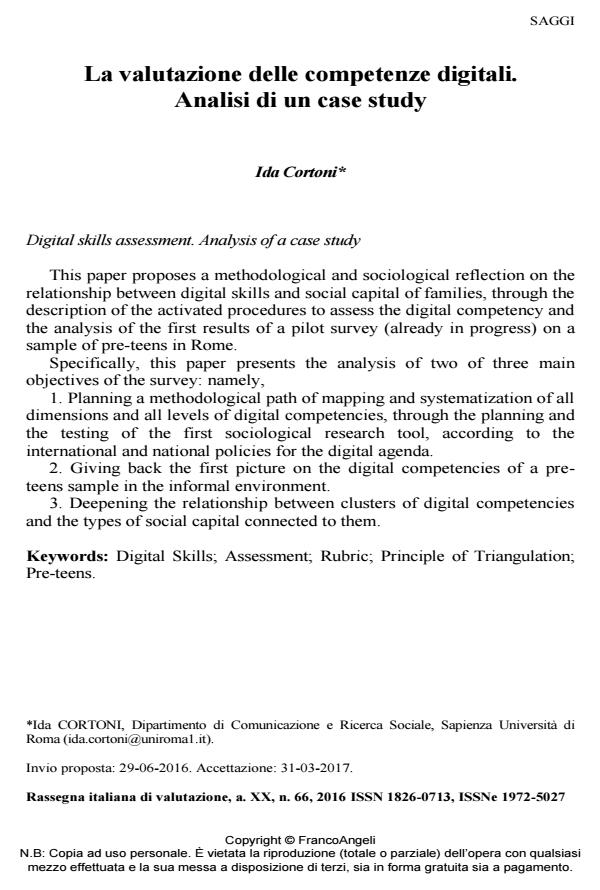La valutazione delle competenze digitali. Analisi di un case study
Titolo Rivista RIV Rassegna Italiana di Valutazione
Autori/Curatori Ida Cortoni
Anno di pubblicazione 2017 Fascicolo 2016/66
Lingua Italiano Numero pagine 22 P. 7-28 Dimensione file 689 KB
DOI 10.3280/RIV2016-066002
Il DOI è il codice a barre della proprietà intellettuale: per saperne di più
clicca qui
Qui sotto puoi vedere in anteprima la prima pagina di questo articolo.
Se questo articolo ti interessa, lo puoi acquistare (e scaricare in formato pdf) seguendo le facili indicazioni per acquistare il download credit. Acquista Download Credits per scaricare questo Articolo in formato PDF

FrancoAngeli è membro della Publishers International Linking Association, Inc (PILA)associazione indipendente e non profit per facilitare (attraverso i servizi tecnologici implementati da CrossRef.org) l’accesso degli studiosi ai contenuti digitali nelle pubblicazioni professionali e scientifiche
This paper proposes a methodological and sociological reflection on the relationship between digital skills and social capital of families, through the description of the activated procedures to assess the digital competency and the analysis of the first results of a pilot survey (already in progress) on a sample of pre-teens in Rome. Specifically, this paper presents the analysis of two of three main objectives of the survey: namely, 1. Planning a methodological path of mapping and systematization of all dimensions and all levels of digital competencies, through the planning and the testing of the first sociological research tool, according to the international and national policies for the digital agenda. 2. Giving back the first picture on the digital competencies of a preteens sample in the informal environment. 3. Deepening the relationship between clusters of digital competencies and the types of social capital connected to them.
Parole chiave:Digital Skills; Assessment; Rubric; Principle of Triangulation; Pre-teens.
Ida Cortoni, La valutazione delle competenze digitali. Analisi di un case study in "RIV Rassegna Italiana di Valutazione" 66/2016, pp 7-28, DOI: 10.3280/RIV2016-066002